
You are reading:

You are reading:
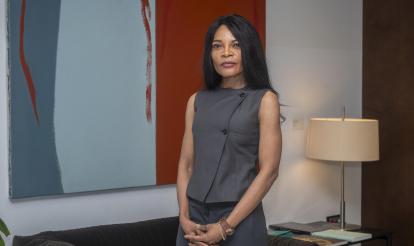
28.02.25
8 minutes readEvery sport is a long-distance race, but not all players start from the same position. Some have to overcome barriers that are not in the rules and determine the competition: gender, skin colour and sexual orientation. In order to consider these issues and promote real change, the series of talks entitled “The Potential of Sport as a Tool for Social Inclusion” brought together some of the key voices in the fight for more inclusive sport at ”la Caixa” Foundation’s Palau Macaya, the International Centre for Human and Social Sciences promoted by UNESCO.
Ana Cristina Maye, the current general coordinator of the Equatoguinean Football Federation and a FIFA Guardian, discovered a few years after she began playing football that she and her friends faced an invisible adversary on the pitch: discrimination because they were women.
During their first games in the schoolyard in Equatorial Guinea, on days so rainy that it was “hard to tell if the ball was white or brown because of the mud”, girls and boys played together on the same team. But those memories would soon be clouded by the shadow of exclusion. “We once walked 32 kilometres to play against a team from another town. They separated us because they said the boys had to play in more professional leagues,” she recalls. It was a turning point. “I was so angry that I said, ‘I’ll never touch another ball again.’” And she didn’t.
She decided that if she couldn’t be on the pitch, she would find another way to take part in football. This reality check led her to become the first woman to hold a senior management position in a men’s A team in Africa years after hanging up her boots. “It was a turning point, my way of reconciling myself with the sport,” she confesses.
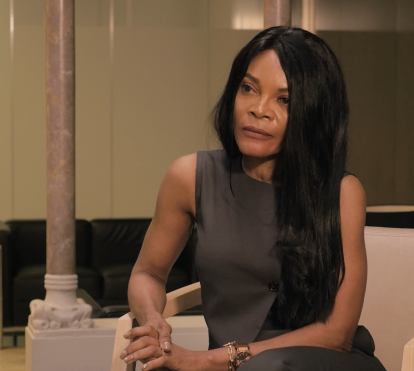
The right to equality in sport is recognised on paper. In its International Charter of Physical Education, Physical Activity and Sport, UNESCO states: “Equal opportunity to participate and be involved at all supervision and decision-making levels in physical education, physical activity and sport, whether for the purpose of recreation, health promotion or high performance, is the right of every girl and every woman that must be actively enforced.”
However, parity is far from a reality. According to a recent report by the very same UNESCO, 49% of girls drop out of sport during their adolescence, a rate six times higher than that of boys; and 21% of female athletes report having experienced at least one form of sexual abuse during their childhood, twice as many as their male counterparts.
Male chauvinism is also experienced in the stands. Forty-two per cent of more than 1,500 female fans surveyed by the UK charity KickItOut said they had been subjected to micro-aggressions at a football match this autumn. From being questioned about their knowledge of the rules of the game simply because they are female to receiving patronising comments or unsolicited compliments, the experience of many female fans remains one of subtle but persistent exclusion.
But if there is one place where women remain the exception, it is the office. A study by the Spanish Sports Association (ADESP) in 2022 found that only 3% of the presidencies of national sports federations in Spain were held by women, and only 7% of regional federations had a woman at the helm.
“Reversing male inertia is very complicated,” claims Alejandra Domínguez, director of the Women’s Sports Institute, in a talk on the ethical and social impact of sport held at ”la Caixa” Foundation’s Palau Macaya. “Women in the world of sports management and administration must be given their rightful place, because they possess enormous merits.”
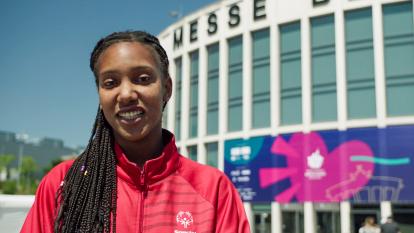
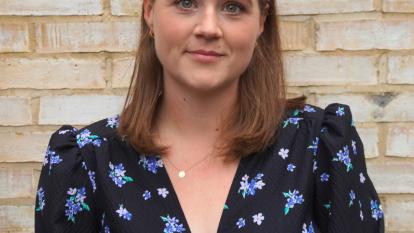
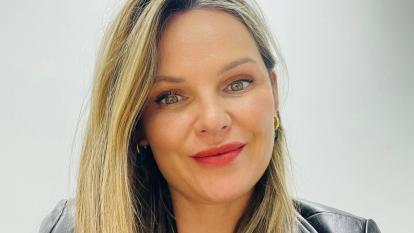
Ever since taking over as general coordinator of the Equatoguinean Football Federation, Ana Cristina Maye has been the subject of much scrutiny. “I can’t identify when I suffer from male chauvinism, racism or classism. I live in constant intersectionality,” she states. “There comes a time when the scab gets so hard that it doesn’t hurt anymore.”
Maye has seen her authority ignored on more than one occasion. “Where’s your boss?” she has been asked countless times. “I’m the boss,” she always replies with the same calmness. There was even a day when it was assumed that the assistant coach – the person in charge of the sports equipment – had the last word before her.
Situations like these are not anecdotal. For many women in sport, being in a leadership position means living with the feeling that they have to prove themselves over and over again, a constant pressure that often leads to what is known as imposter syndrome. “It seems that our negotiated territory is the household. So you have to fight the guilt of being in one place or the other, and it’s very difficult to be good at both,” admits Alejandra Domínguez.
The feeling of never being sufficiently prepared is not just a question of lack of capacity, but of a hyper-masculinised system that puts them to the test every day. “They tell us that we’re not good at this, so if I’m wrong, they won’t teach me, they’ll eliminate me,” Maye reflects. “We don’t want to take jobs as a favour or to fill quotas. We deserve them; we are qualified, so why don’t our CVs reach any offices?”
In order to rewrite the rules of the game, one must first identify those that perpetuate discrimination by stealth. Ana Cristina Maye advocates re-education as the solution: “We can’t compare a men’s game with a women’s game. It’s a completely different sport.” In her opinion, real change can only come from an alliance between men and women. “If we unite, we will build a fairer world for new generations,” she believes.
Speaking out is also essential. Since 2019, the organisation Kick It Out, which has been working with footballers, clubs and fans to eradicate discrimination in English football for more than 30 years, has received 3,874 complaints of discriminatory abuse in sport. Of these, 42% were for racism, 15% for sexual orientation, 10% for religion and 6% for gender. “We ask people to report any kind of discrimination, whether they are in a stadium or watching their child play in the park,” says Hollie Varney, Director of Operations.
But reporting alone is not enough: education is key to preventing these situations. That is why Kick It Out has developed education programmes for academy players, coaches and managers. More than 5,000 junior players have received training on inclusion over the last two seasons. “There is a lack of understanding at times,” Varney observes.
As well as being a powerful tool to bring us closer to the goal of equality, sport also opens a wide window on diversity, inclusion and integration. “It has been a salvation for me,” says Paola Manjón, a basketball player and gold medallist with the Spanish national team at the Special Olympics World Games 2023. “It’s my comfort zone, where I don’t have to pretend to be accepted.”
Her career reflects a constant battle against stereotypes and invisible barriers. Critical of the lack of role models with intellectual disabilities on the playing field, Manjón has found her mother’s unconditional support indispensable in forging her promising sporting career: “She was always my driving force.” But frustration soon set in. “When you discover your limits, you can start to aim higher and look for an alternative way to get closer to your limitations,” is the advice she would like to pass on to girls who share her dream.
It is a fact that sport is making great strides towards a more inclusive future, and with it the aspirations of new generations. “Girls used to want to be Messi or Neymar. Now they want to be Alexia, Salma or Aitana,” Maye emphasises with emotion. The emergence of female idols on the pitch is a social and cultural phenomenon that has broken down barriers and inspired the youngest girls to imagine themselves at the top of the competition, to feel part of a space that was historically alien to them: “Carmen Valero, Kathrine Switzer, Ana Carmona: they were all women in sport, but they lacked a voice. Now they put a name and a face on us,” she asserts.
Even so, the horizon is far from clear. “When it’s no longer news that a woman is refereeing a match [referring to Stéphanie Frappart], then I’ll start to relax again.” Maye concludes.